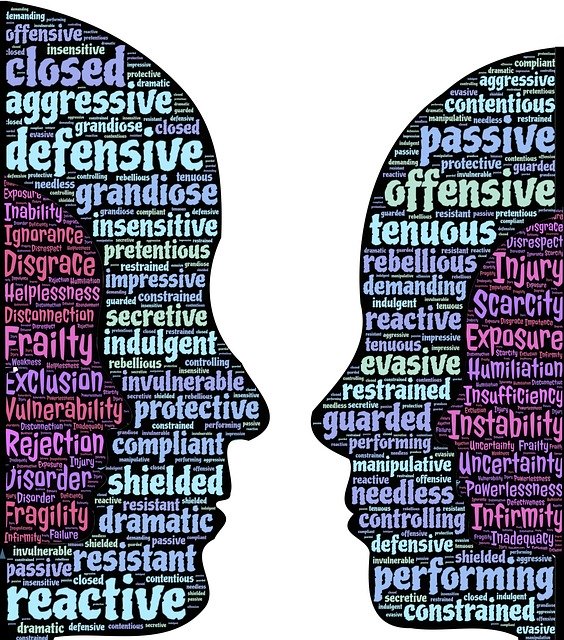 Submitted by Julia on
Submitted by Julia on

Image by John Hain from http://Pixabay.com
The need to be right is an incredibly unhealthy perspective that can wreak havoc on your personal and professional life.
The short and sweet reason why is that no one wants to deal with a person who always thinks they are right.
A person who can’t take responsibility for their own shortcomings and own their failures is someone who is creating a lot of extra work for the people around them.
That person who feels the need to always be right will typically have a difficult time acknowledging that they are the problem, pushing their responsibility off onto someone else, where it does not belong.
Just about any problem can be fixed if you’re willing and honest enough to accept your role in it.
If someone can’t admit they are wrong, it’s going to make problems much worse, because it’ll take far more work to fix the source of the issue.
That behavior may not be limited to the large things either.
ometimes, people have a hard time admitting that they were wrong about small things, like an answer to a question or an erroneous claim they made.
And that’s bad when it’s a friend or a loved one, because you can wind up sucked into an unnecessary argument that really doesn’t matter.
This begs the question…
Why do we feel the need to always be right?
The need to always be right can be rooted in a few different things.
Firstly, a common belief is that it is a mask for insecurity – and it often is.
The person is concerned with how others will perceive them if they are wrong or they feel that they are not meeting whatever expectations are on them to be right.
That type of insecurity is often something that is ingrained in a person as a child through dysfunctional or abusive family dynamics.
That need to be right may be a defense mechanism that helped that person survive whatever it is they experienced and was necessary for that time, but it’s destructive in any kind of healthy relationship.
Secondly, modern society tends to punish people who are not right, because so many things have turned into a pointless argument of “who’s right?”
Politics is a blatant example. People on either side are constantly screaming or arguing about who’s right, simply trying to slug it out with one another, and refusing to even look for common ground.
Ultimately, they end up getting nowhere because to admit they are wrong means conceding ground to “the enemy.”
Thirdly, admitting one is wrong in the workplace can have dramatic consequences.
People make mistakes all the time, but owning up to those mistakes and admitting when you’re wrong can invite people to try to use that against you.
Perhaps it’s a boss who doesn’t tolerate any failure or doesn’t believe they can do any wrong.
Maybe it’s a coworker who is angling for a promotion that you’re competing for who will be more than happy to use that mistake against you.
The need to be right can become a habit if you’re spending 40+ hours a week making sure you’re covering yourself so you don’t get blamed and fired for the mistake of someone else because they don’t want to admit their own mistakes.
Fourthly, you have people who exhibit intellectual elitism and can’t help but demonstrate how superior their knowledge is by pointing out when others are wrong.
They may not “need” to be right all the time for any good reason other than because they often are (in a factual sense).
They don’t have the social awareness to realize that correcting people is extremely irritating and often unnecessary.
And, finally, there is the mental health side of the equation.
People with mental health issues like an anxiety disorder may feel the need to always be right as a way to keep things in their mind and life plain and predictable.
Significant disruption and unexpected surprises can be upsetting and trigger mental unwellness.
It may feel better for their own peace of mind and happiness for that person to just stick to their opinion of what they think is right instead of trying to understand another perspective.
The problem is that it doesn’t lead to peace of mind and happiness. It’s a small bandage over a serious wound that needs closer attention.
With these things in mind, let’s ask…
What ways can my need to be right harm me?
The need to be right can be harmful to personal and professional relationships, but how?
People who feel like they are always right tend to not be good listeners.
They don’t need to hear anything about what anyone else has to say about the matter because they already know what the answer is – whatever they know it to be.
That’s harmful because it may prevent you from seeing and fixing small problems before they become major, and major problems before they become catastrophic.
The person who is doing the talking will often feel like they are not being trusted or respected because they’re not being listened to.
That spirals out into them no longer bothering to talk, because why would they bother when you’ve already made up your mind?
Not only is that a problem in the workplace, but it’s a sure way to destroy a relationship.
Can a person who always thinks they are right see the big picture?
We may not know what we don’t know.
Growth and knowledge often take place outside of our already established boundaries.
Why would you bother looking for new or better information if you already believe that you know what’s right?
Why bother learning anything at all if you feel like you already know everything you need to know?
It’s a narrow way to perceive life and prevents personal growth.
All of those things pale in comparison to probably the most important negative consequence – the need to be right robs you of happiness.
Why? Because a person who needs to be right cannot tolerate when someone else is.
They may feel like they are constantly on the offense or defense with everyone else in the world who has an opinion they don’t agree with.
And in this age of outrage culture and everyone being upset or offended by everything, it’s mighty hard to find happiness and peace of mind when you’re constantly immersed in anger and embroiled in conflict.
In fact, it’s impossible to have happiness and peace of mind if you’re constantly disrupting them with anger and conflict.
They aren’t compatible states.
That’s why it’s so important to choose one’s battles carefully, to fight the conflicts that are worthwhile, and learn to let other things go.
The world is a complicated place. People can be ignorant, they can be foolish, or they can be misinformed.
They can be blinded by their own anger and unable to see the truth.
None of it is all that relevant, really.
People really only change when they want to and you generally can’t convince someone of that by fighting with them. They usually just dig in to their own beliefs harder.
But if you do want to change…
How do I let go of my need to be right all the time?
Realizing that you have a problem is a big first step in overcoming it. But what else do you need to do in order to let go of this unhelpful behavior?
1. Understand where your need to be right comes from.
That may be a hard thing to identify, particularly if you’re not in tune with yourself.
You may also find that you can’t identify where the need comes from because it comes from such a negative place.
People who have lived through traumatic or abusive circumstances may have parts of their memory repressed.
If you can’t identify where your need to be right is coming from, it would be worthwhile to talk to a certified mental health professional about the problem and how to correct it.
2. Choose to give up control and follow another person’s lead on purpose.
In social dynamics, people often fall into or push themselves into assumed roles.
A person who is used to pushing themselves to the front of a group to lead the way may need to make an active choice to step back and let someone else lead.
The results probably won’t turn out how you envision, but you’ll find that people can be pretty competent if they are given the freedom to follow their own path and ideas.
You can always make suggestions about how to proceed.
3. Force yourself to acknowledge when you’re wrong.
Admitting when you are wrong is one of the hardest, most valuable things you can do.
In doing so, you’re demonstrating that you understand that you made a wrong decision and want to mend that bridge with other people.
The need to be right causes issues because you may not be right. You might have bad information or have just responded out of impulse.
Humility is a strong path to overcoming those impulses and managing them well.
4. Challenge the need in your own mind by further exploring the opinions of other people.
Ask other people why they believe the things that you disagree with.
By trying to look at the world through their eyes, you can expand your own perspective and learn new things.
Maybe you’ll find that you weren’t completely right after all!
At minimum, you’ll at least get more experience with a wider variety of perspectives.
5. Evaluate your social skills to see if they might need working on.
A person’s intelligence can interfere with their social awareness, particularly if they have mental health issues that affect socialization.
Social skills are something that can be learned and honed with book learning and practice.
The need to be right all the time can damage your relationship with other people, such as embarrassing a spouse by arguing over some inconsequential matter that no one else really cares about.
Social awareness is being able to identify when it’s worthwhile to argue and when it’s best to bite your tongue.
6. And most importantly – keep trying!
Fixing this kind of thinking is not a one and done situation.
It’s a problem that will require consistent, repeated effort over a period of time to fix.
It may also require the assistance of a mental health professional if you feel like you’re having a hard time staying on track or require more focused help.
Jack Nollan
https://www.aconsciousrethink.com/11749/always-need-to-be-right/
- 351 reads